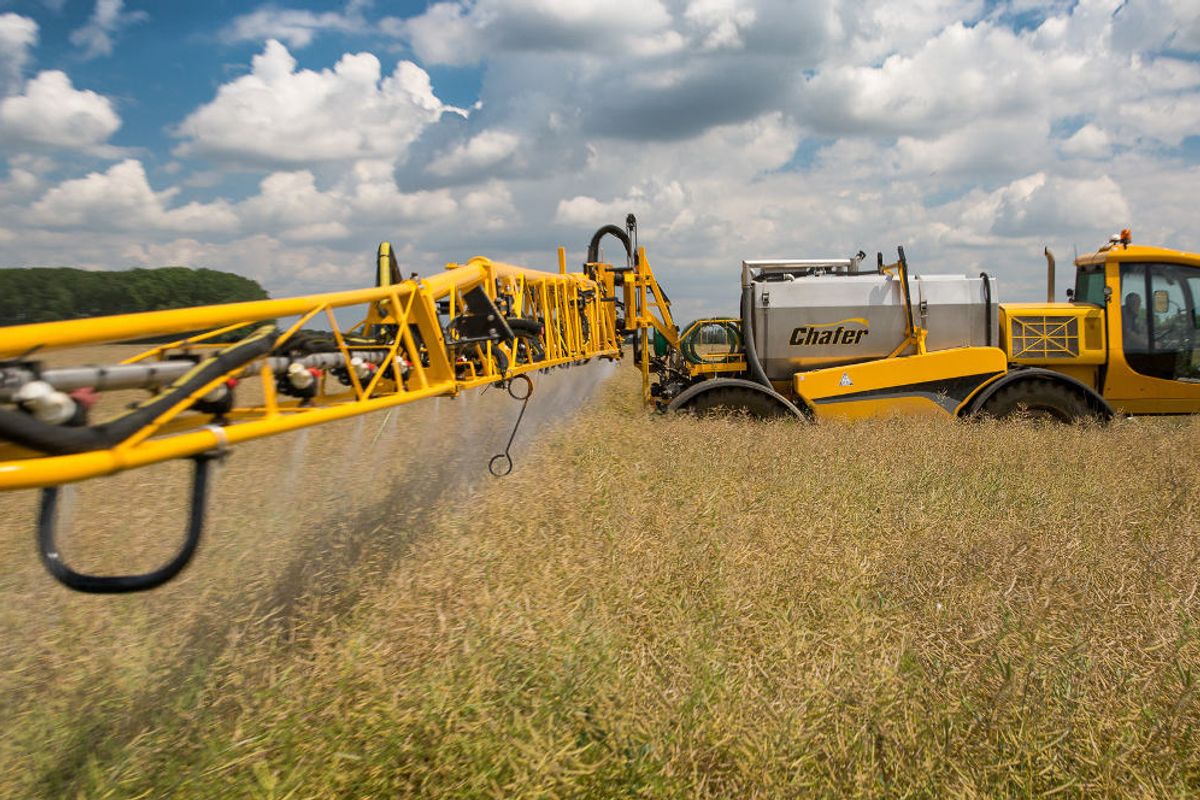
This story was originally published in The New Lede, a journalism project of the Environmental Working Group, and is republished here with permission.
European researchers have found new evidence linking popular weed-killing products to cancer at levels currently considered safe.
The study focused on glyphosate, the active ingredient in Roundup herbicide and other brands, and is the latest in a series of studies examining the safety of the world’s most widely used weed-killing chemical.
Notably, the work comes as the European Union is wrestling over whether or not to keep glyphosate products on the market after the current approval expires in December.
The research has not yet been peer reviewed, but was presented Wednesday at an international scientific conference.
“We felt an urgency to present this data, and provide it to policy makers and the public,” said Daniele Mandrioli, director of the Ramazzini Institute in Bologna, Italy, which is overseeing a multi-faceted research program investigating glyphosate impacts called the Global Glyphosate Study.
“This is of extreme concern. We couldn’t sit on this data,” Mandrioli said.
Glyphosate is so widely used that it is ubiquitous in the environment- commonly found in food, water and human urine samples.
Tumors in rats
Researchers said they discovered that low doses of glyphosate-based herbicides at exposure levels within the current acceptable regulatory standards caused a statistically significant dose-related trend in leukemia incidence in young rats, including those younger than one year. The findings showed an “extremely rare onset,” according to Mandrioli.
Tumors were even seen in rats aged 21 weeks. One year in the life of a rat is roughly equivalent to 40 years in a human, the scientists said. No cases of leukemia were observed in the first year of age in more than 1,600 historical control animals.
The researchers looked at glyphosate and at two commercial glyphosate-based formulations, administering different doses via drinking water.
The Global Glyphosate Study is studying whether or not glyphosate is carcinogenic, neurotoxic, disruptive to the endocrine system, and how the chemical may impact reproductive health. The research team involves scientists from several different academic institutions in the US and Europe, including the Icahn School of Medicine at Mount Sinai, George Mason University, University of Bologna, University of Copenhagen, Boston College, Italian National Institute of Health, Federal University of Parana, the University of California Santa Cruz and Genoa Hospital San Martino.
Last year, researchers from the team published data showing glyphosate had effects on the microbiome at doses that are currently considered safe.
Global controversy
Monsanto, now owned by German-based Bayer AG, introduced glyphosate as a weed killer in the 1970s, driving a surge in use when it introduced genetically engineered crops designed to tolerate treatments of the chemical to make it easier for farmers to eradicate weeds from farm fields without harming crops.
Over the last 20 years, scientific evidence has emerged linking the chemical to a range of human and environmental health concerns, including cancer. The International Agency for Research on Cancer declared glyphosate a probable human carcinogen in 2015, and Bayer has paid out billions of dollars in settlements to cancer patients who have sued the company, claiming exposure to glyphosate-based herbicides such as Roundup caused them to develop non-Hodgkin lymphoma.
Many countries have moved to limit or ban glyphosate use but the agrochemical industry has been fighting the efforts.
Glyphosate products were only narrowly reapproved for use in Europe in 2017 amid a bitter divide among voting members of the bloc. That approval expires in December, and the divide remains. Earlier this month voting EU members were unable to obtain a qualified majority to support or to block the proposed renewal of glyphosate. Another vote is expected in November.

